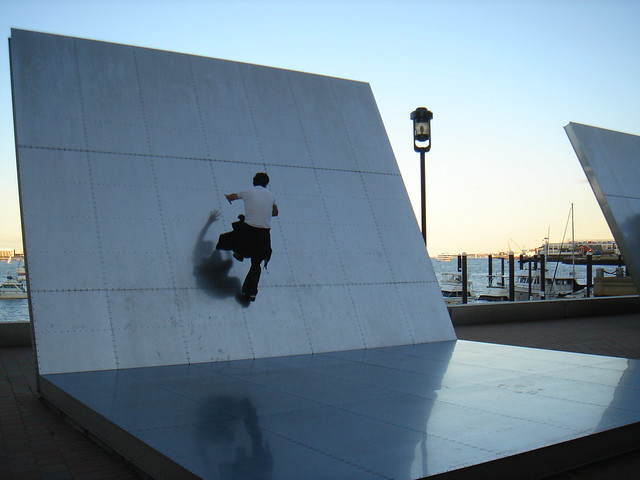Podcast: Play in new window | Download
In this Adventure we are being indirect and circuitous and looking for an angle on the word obtuse.
Obtuse [əbˈtjuːs] means:
- Blunt, pointed or acute in form
- More than 90° and less than 180°
- Intellectually dull or dim-witted
- Deadened, muffled or mutted (sound)
- Indirect or circuitous
Obtuse comes from Middle French obtus (obtuse, boring, dull, lifeless), from the Latin obtūsus (blunt, dull, obtuse), from obtundō (to batter, beat, strike, blunt, dull), from ob- (against) and tundō (to beat, strike, bruise, crush, pound), from PIE *(s)tewd- (to push, hit) [source].
Words from the same roots include student, study and studio in English, and tundir (to shear, mow) in Spanish [source].
Also from the same roots we get the word stot, which means a leap using all four legs at once. This is what springboks, Thomson’s gazelles, pronghorns and other species do as a way to show predators that they would be difficult to catch (see below) [source].
Stotting is also known as pronking or pronging, which come from Afrikaans pronk (to show off, strut or prance), from Dutch pronken (to display, show off) [source].
Here’s a video I made of this information:
Video made with Doodly [afflilate link].
I also write about words, etymology and other language-related topics on the Omniglot Blog, and I explore etymological connections between Celtic languages on the Celtiadur.
You can also listen to this podcast on: Apple Podcasts, Amazon Music, Stitcher, TuneIn, Podchaser, PlayerFM or podtail.
If you would like to support this podcast, you can make a donation via PayPal or Patreon, or contribute to Omniglot in other ways.


